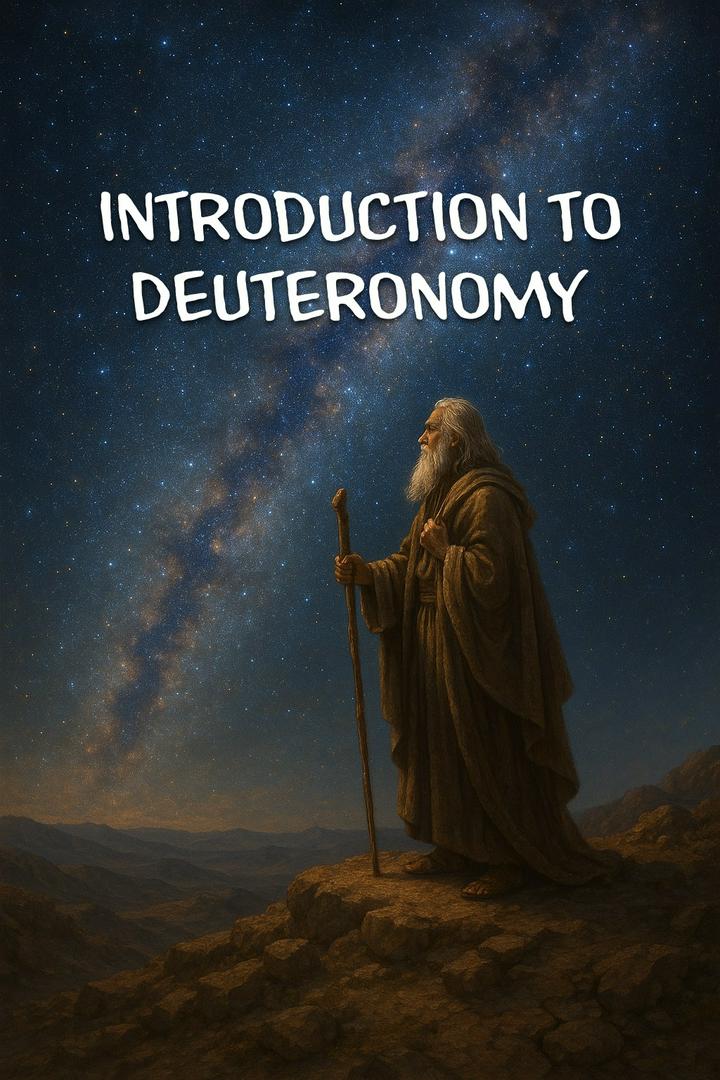1/1
Deuteronomy: A Brief Introduction to the Word of God - Part 6
The Book of Deuteronomy is often called the “second law,” not because God changed His Word, but because Moses—standing at the edge of the Promised Land—repeated and expanded the covenant to a new generation. Nearly 40 years had passed since Sinai, and those who once trembled at the mountain had perished in the wilderness. Now, their children were poised to enter Canaan, and Moses, knowing he would not go with them, delivered his farewell sermons. Deuteronomy is both a history lesson and a heartfelt plea. Moses recalls Israel’s wanderings—their victories, failures, rebellions, and God’s unwavering mercy. He restates the Ten Commandments (chapter 5) and calls the people to wholehearted devotion: “Hear, O Israel: The Lord our God, the Lord is one. Love the Lord your God with all your heart and with all your soul and with all your strength” (6:4–5). This “Shema” became the central confession of Jewish faith, echoing even into Jesus’ teaching centuries later. More than a legal code, Deuteronomy is a covenant renewal. Blessings are promised for obedience—protection, prosperity, and God’s nearness. Curses are warned for rebellion—exile, hardship, and destruction (chapters 27–28). At the heart of this covenant stands a choice, spoken in words that ring with urgency and hope: “I have set before you life and death, blessings and curses. Now choose life, so that you and your children may live and that you may love the Lord your God, listen to His voice, and hold fast to Him” (30:19–20). The book closes with the passing of leadership to Joshua and the death of Moses. Though denied entry into the land, Moses sees it from Mount Nebo, his life ending with God Himself as his undertaker. 🙏🏼 CONTINUED IN COMMENTS ⬇️⬇️⬇️ #Deuteronomy #Bible #God #Jesus #BibleStudy #Help #Christian #Christ #BooksoftheBible
14 days ago

Seed of israel ?
Still pushing these racist of white people on us huh ?
14d
Rocky Mount, NC
Reply(22)
1

ScribesQ
Precious Father Almighty Is the only way Hallelujah Amen 🙏
14d
Reply
4

Frances Norris
Amen
14d
Lawrenceburg, TN
Reply
2

Jennfier Hamilton
amen 🙏
13d
Leavenworth, KS
Reply
2

Leon Welch
Losing a loved one will break you.

9d
Killeen, TX
Reply(1)
1

Linda Coleman
thank u my father and Jesus for everything 🙏🙏
13d
Greenville, SC
Reply
1

Alice Scott
Amen Amen and Amen 🛐🙏🏾🙌🏾.
8d
Buffalo, NY
Reply
1

Bigmama
AMEN 🙏 📖❤️ God’D LIVING WORD
13d
Concord, NC
Reply
1

Alice Scott
Amen 🙌🏾🙌🏾
8d
Buffalo, NY
Reply
1

Grace Goewey
👍🏼👍🏼👍🏼
13d
Wilbraham, MA
Reply
1
More comments ...
write a comment...
